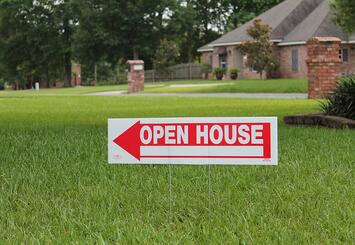
The nation is witnessing a surge in interest and demand for individual homes around the country. Home inventory is now quite low and even with higher interest rates looming, demand remains high and bidding wars are still common. The rate of competition for new homes—measured as the number of listings that attract more than one competing bid— today is 65 percent and this up from a bit over thirty percent at the start of the COVID-19 pandemic. And home prices rose 19.2 percent between March 2021 and March of 2022, leading average home prices to hit a record high.
Stories abound around the nation about scores of potential buyers lining up for hours to just see and eventually bid on homes. And while homeownership always presents a daunting logistical challenge, it also is increasingly expensive with prices up almost 20 percent in the past year, and may not be within reach for everyone.
But just because houses are too expensive for too many, that does not mean home buying is itself not a good thing. Indeed there is mounting evidence that owning a home is cognitively good for homeowners and their families and also holds powerful civic spillover for society as a whole as well.
The American National Family Life Survey, conducted by the Survey Center on American Life at the end of 2021, asked over 5,000 Americans about their outlook and relationships with their local communities. Homeowners repeatedly report not only being happier but also better connected and involved with their local neighborhoods as well.
When Americans are queried about how satisfied they are with the quality of life in their local communities, differences between homeowners and renters become immediately apparent. Half (50 percent) of homeowners state that they are either completely or very satisfied in their communities and another 39 percent are somewhat satisfied, meaning that 89 percent of owners overall are satisfied with their local residential situation. In contrast, just over 3 in 10 (31 percent) of renters report being very or completely satisfied while 49 percent say they are somewhat satisfied.
Beyond increased satisfaction with their local neighborhoods, homeownership is associated with cognitive and mental health benefits, as residential ownership often conveys a sense of stability, security, predictability, and rootedness. This is far less potent when someone rents: Forty-five percent of homeowners in the Family Life Survey report being very or completely satisfied with their personal health compared to just a third (34 percent) of renters. Moreover, almost half (47 percent) of all owners state that they are either hardly ever or never lonely or isolated from those around them while a notably lower number of renters – 33 percent – report rarely feeling disconnected. So, there is a non-trivial impact of being an owner compared to a renter on one’s sense of self and how connected they feel to others.
When queried about the issue of upward mobility, there are potent differences between homeowners and renters as well. Homeowners are far more likely to agree with the statement “most people who want to get ahead can make it if they're willing to work hard,” compared to the notion that “hard work and determination are no guarantee of success for most people.” Seventy percent of homeowners compared believe that hard work alone is enough to get ahead, compared to 60 percent of renters.
In addition to appreciable differences in attitudes toward mobility, local engagement patterns also appreciably differ between homeowners and renters. For instance, Americans who own their homes are twice as likely as renters are to be members of a community group or neighborhood association. Almost a quarter (23 percent) of homeowners report being members of such groups, while just 1 in 10 (13 percent) renters report the same. Data on volunteering looks similar. About a third (32 percent) of homeowners report having volunteered for a school activity, local charity, or religious group at some point in the past 6 months while just under a quarter (23 percent) of renters say they have done the same; a significant difference. Finally, homeowners are more likely to engage in the local community than renters are. Forty-one percent of homeowners report having attended a social event in the community, such as a high school sporting contest, play, or local festival, in the past 6 months compared to a lower 33 percent of renters.
These data show that owning a home does make one more deeply invested in one’s immediate community, which in turn improves one’s outlook and sense of connection to others. For years many in the real estate industry have argued that these benefits are real, we now have empirical proof that homeownership is clearly instrumental in not only building social capital but promoting engagement in the civil sphere as well. And this is all occurring as the nation emerges from a messy pandemic era of increased mobility and a significant changes in work routines and traditional offices are reconsidered with many Americans preferring to work from home.
Of course, other factors such as age, income, geography, and family composition unquestionably influence housing choices and the decision to purchase a home. Even so, owning a home still has a potent impact on how one sees their environment and position in life. Government at all levels should help markets, developers, and citizens achieve homeownership, for it brings real and meaningful benefits to individuals, communities, and society as a whole.
Samuel J. Abrams is a professor of politics at Sarah Lawrence College and a nonresident senior fellow at the American Enterprise Institute.
Photo: via Piqsels, in Public Domain.












